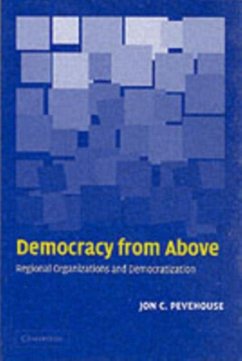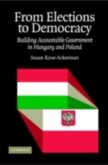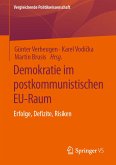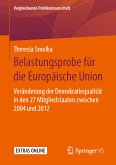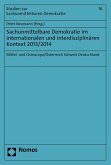Since the momentous events of the late 1980s, democratic transition has been a widely studied phenomenon. Most scholars who have investigated the causes and implications of the global trend to democracy have argued that domestic politics is the leading determinant in the success or failure of transitions to democracy. In this book, Jon Pevehouse argues that international factors, specifically regional organizations, play an important role in the transition to and endurance of democracy. Domestic elites use membership of regional organizations to advance the cause of democracy since these organizations can manipulate the costs and benefits of democracy to important societal groups such as business elites or the military. Six cases (Hungary, Peru, Greece, Paraguay, Guatemala, and Turkey) examine the causal processes behind the statistical association between regional organizations and democratization. These findings bridge international relations and comparative politics while also providing guidelines for policy-makers who wish to use regional organizations to promote democracy.
Dieser Download kann aus rechtlichen Gründen nur mit Rechnungsadresse in A, B, BG, CY, CZ, D, DK, EW, E, FIN, F, GR, HR, H, IRL, I, LT, L, LR, M, NL, PL, P, R, S, SLO, SK ausgeliefert werden.
'Democracy from Above bridges disciplinary and methodological categories in a smart and thorough way. Students of both international organisations and democratisation will have to contend with the book's convincing conclusions, and policy-makers should as well.' The Review of International Organizations

